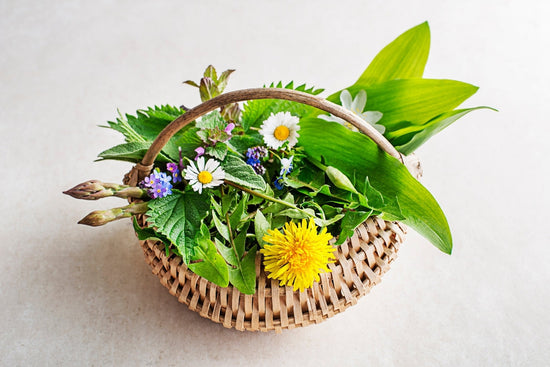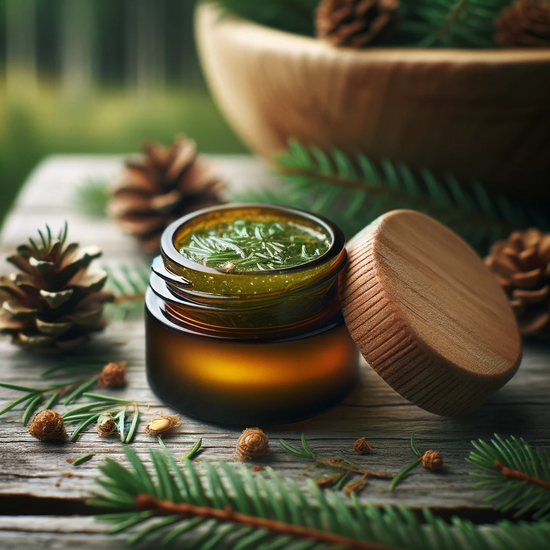Osha and Sustainability: A Guide to Eco-Conscious Herbal Choices

Here at Eclectic Herb, we are nearing the end of our supply of sustainably harvested Osha and we are sad to say that we have not identified another source that meets our high standards of ethical harvesting.
As pioneers in herbal quality, we ensure all herbs we use are ethical, effective, and clean. Given our deep commitment to sustainability and environmental stewardship, we have made the difficult decision to discontinue Osha (Ligusticum porteri). This step reflects our broader commitment to conservation and ethical practices, aiming to protect our planet and conserve natural resources.
The Importance of Protecting Osha
Osha, often referred to as the "grandparent" of herbalism due to its revered status and traditional use, is facing sustainability challenges that threaten its existence. Native to the Rocky Mountains, this slow-growing perennial is under threat due to overharvesting and a growing commercial demand that its natural regeneration rate cannot support. The lack of regulatory protection and its popularity in commercial herbal supplements have led to a concerning decline in its population.
The plant's slow growth, requiring up to 6 years to establish mature tap roots, combined with its preference for high elevations and specific soil conditions, makes its cultivation outside its natural habitat challenging. These factors, coupled with an increasing demand is highlighted in the American Herbal Products Association's 2011-2017 Tonnage Survey, underscore the urgency of finding sustainable alternatives to Osha.
What is Osha?
Osha, scientifically known as Ligusticum porteri, is an indigenous plant to the Rocky Mountains, valued for its beneficial properties, particularly in supporting respiratory health.
This perennial herb is characterized by its fern-like leaves and small, white flowers, which bloom on tall stems. With roots that are rich in a variety of unique compounds that support the lugs and immune system, Osha is often sought after for its affinity to soothe throats, calm lungs, and enhance immune function, making it a cherished herbal ally. Beyond its health-supporting qualities, Osha is valued in indigenous cultures for its protective and purifying effects, often used in ceremonial practices to ward off negative energies.
However, the very qualities that make Osha a valuable herb are also contributing to its vulnerability. Its popularity, combined with the challenges of sustainably harvesting this slow-growing plant, has led to concerns about overexploitation and habitat disruption. This situation is further exacerbated by the limited geographical range of Osha, primarily found in the high-altitude regions of the Rocky Mountains, where environmental conditions are harsh and specific to its growth requirements.
Protecting this precious resource involves not only addressing the immediate threats of overharvesting and habitat loss but also fostering a broader understanding and appreciation of Osha's role in the ecosystem and indigenous cultures. By raising awareness about its importance, we can help ensure that Osha remains a part of our natural heritage and continues to benefit future generations.

"In every leaf, root, and bloom lies a tale of the earth's past and a promise for its future. Let us nurture them with care, for in protecting our flora, we ensure that future generations and the earth itself will flourish."
What can you do to help?
Support Ethical Brands
- Research Before You Buy: Take the time to research brands and their environmental policies. Support those that actively participate in sustainable practices, such as ethical sourcing, supporting local communities, and investing in renewable resources.
- Ask questions: As a consumer, your curiosity can spark significant change. Companies take note of the queries their customers raise. If Osha features in the products you love, don’t hesitate to inquire about its source and the steps taken to ensure its sustainable harvest. A transparent company will be ready with answers.
Spread the Word
- Educate Others: Share your knowledge about Osha and its sustainability issues with friends, family, and on social media. Spreading awareness can lead to more informed consumer choices collectively.
- Advocate for Change: Donate to or volunteer with organizations dedicated to conserving at-risk plants and their natural habitats. Your contribution can aid in research, conservation projects, and education efforts.
Practice Sustainable Consumption
- Mindful Use: There are alternatives to endangered herbs, consider using an alternative that grows easily and abundantly and adopt a mindful approach to all herbal consumption.
By incorporating these actions into your daily life, you can play a part in protecting Osha and other endangered plants.

"Each small step that you take contributes to a larger movement towards sustainability and environmental stewardship."
Herbal Alternatives to Osha
Angelica (Angelica archangelica) – Offers respiratory support with its expectorant properties, making it a viable alternative for certain Osha applications.
Elecampane (Inula helenium) – Known for its robust lung-supporting qualities, Elecampane serves as an excellent substitute in respiratory health formulations.
Gumweed (Grindelia spp.) – With its expectorant and anti-spasmodic actions, Gumweed can be used as an alternative in treatments for respiratory support.
Hyssop (Hyssopus officinalis) – Valued for its affinity for lung and respiratory health, Hyssop stands out as another suitable replacement for Osha.
Thyme (Thymus vulgaris) – Renowned for its benefits for the immune system and the respiratory system, Thyme offers a broad spectrum of applications that align closely with those of Osha.

Eclectic Herb's Ethical Response: A Sustainable Path Forward
In light of these challenges, Eclectic Herb has made the conscientious decision to either discontinue or thoughtfully reformulate products containing Osha. This move is integral to our broader strategy aimed at diminishing our reliance on at-risk, wild-harvested herbs. Our approach has been deeply influenced by an understanding of Osha's ecological and cultural importance, underpinned by a commitment to preserving herbal resources for the enrichment of future generations.
Choosing to phase out Osha represents our dedication to conserving this plant. It reaffirms our mission to not only meet the immediate needs of our customers but to also nurture the long-term vitality of our planet and its natural treasures.
Our commitment encompasses an ethical approach to sourcing, characterized by an emphasis on cultivated sources and sustainable wildcrafting practices. These practices are designed to honor the delicate equilibrium of nature, ensuring that our products continue to represent the highest standards of quality, efficacy, and environmental integrity.
FAQs
What practices does Eclectic Herb have to ensure herbs are ethically sourced?
As a family-owned business, Eclectic Herb prides itself on the long-standing relationships we have with our staff, including our wildcrafters, who have been part of our team for many years and received their initial training directly from our founder, a naturopathic physician. This foundation ensures that our practices are deeply rooted in ethical principles; we are committed to sustainable sourcing, either by cultivating our herbs organically or by ethically gathering local herbs. This approach underscores our dedication to responsible stewardship of the earth's resources, ensuring that our herbs are sourced with respect for the environment and future generations.
How do ensure the quality and efficacy of your herbs?
At Eclectic Herb, being predominantly a freeze-drying company gives us a great advantage. It means we have to get all our herbs fresh, which means we can actually see and inspect every single one ourselves. This hands-on fresh approach ensures we only get the very best, keeping everything natural and pure. Our freeze-drying magic then kicks in, capturing all the goodness of these fresh herbs without needing high heat or any chemicals. When you choose our herbs, you’re getting the real deal – full of love, care, and as close an herb growing out in the wild as it gets.
Why do you freeze-dry? What impact does this have on the environment?
We choose to freeze-dry because it’s the gentlest way to preserve the essence and benefits of our herbs. This method allows us to maintain the nutritional integrity, flavor, and aroma of the plants, as close to their natural state as possible. Unlike traditional drying methods that can degrade a plant's compounds due to high temperatures, freeze-drying retains the vital nutrients and active components by removing water under low temperatures and vacuum pressure. This process ensures that our herbs remain potent and effective, providing you with the highest quality herbal products.
Moreover, by removing only the water, freeze-drying eliminates the need for chemicals and preservatives, making our products as clean and natural as possible. This approach not only benefits your health but also aligns with our commitment to sustainability. Because freeze-dried products have an extended shelf life without the need for refrigeration, we're able to reduce energy consumption and waste, further minimizing our environmental footprint. Through freeze-drying, we strive to protect our planet while delivering the purest and most potent herbal supplements nature can offer.
Products Featured In This Blog




